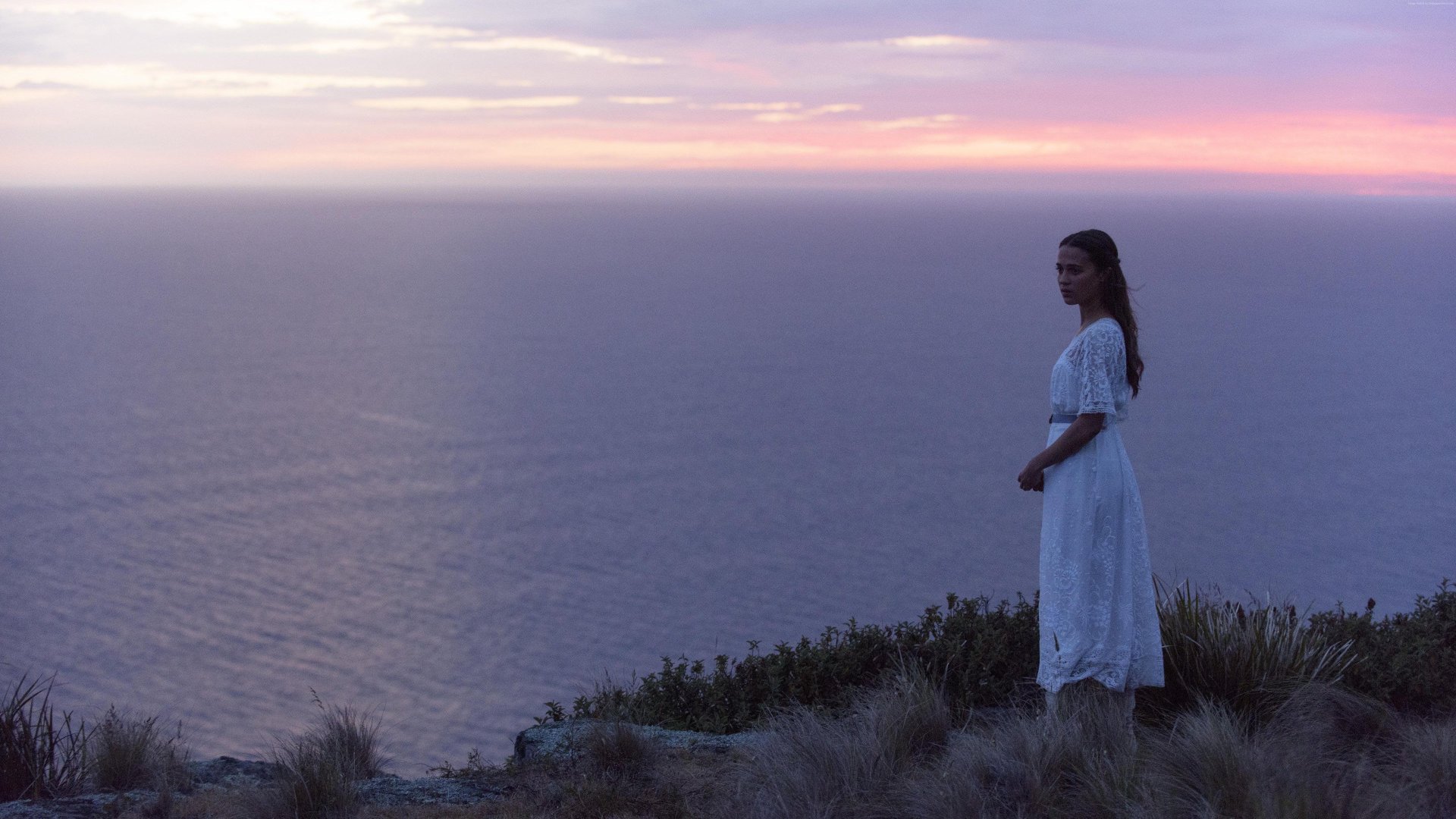 Walt Disney Studios Motion Pictures
Walt Disney Studios Motion PicturesEvery year or so, Hollywood turns out a romance shot in a picturesque location—usually written by Nicholas Sparks—that might as well be sponsored by Kleenex, for two reasons. One, because you'll go through reams of its most popular product (lotion or not, your pick) in the theater. Two, the movie's a lot like Kleenex: soft and comforting and even necessary sometimes, but easy to tear apart or melt, and meant to be tossed once you're done with it.
The Light Between Oceans, I'm happy to report, is not that movie. Instead of flattering romantic fantasies, it digs into the difficult truth about the world, and comes out with a hopeful realism that seems, after all, quite beautiful.
Directed by Derek Cianfrance (The Place Beyond the Pines), The Light Between Oceans is the old-fashioned story of a lonely lighthouse keeper (Michael Fassbender) and his wife (Alicia Vikander), who are deliriously happy in their wild, lovely island home until it becomes clear that their dream of having a child can only end in heartbreak—that is, until their prayers are answered in the most unexpected way.
Typically the film would end here, but there's more to this story, which is adapted from the bestselling 2012 novel by M.L. Stegman. The answers to their prayers depend on the heartbreak of someone else (Rachel Weisz), and so the film gains a backbone and a conflict that can't be easily resolved.
 Walt Disney Studios Motion Pictures
Walt Disney Studios Motion PicturesThe Light Between Oceans is thematically rich, a clear morality tale about guilt, desire, and redemption that sustains an undertone of sadness. Here is the thing: we wreck one another's lives, and sometimes there's no clear fix—no fix at all. Sometimes there's no way to hit the reset button. Redemption does not mean we can just forget the whole thing ever happened. And sometimes there's simply no way to a happily ever after.
These are all great themes, but great themes alone don't make a film good. In The Light Between Oceans, those themes are woven into the unnervingly gorgeous landscape and understated, emotional performances, especially from Fassbender and Vikander, whose on-screen relationship pulses with heat and chemistry.
The film does seem to lose its way in the third act a bit, and its luminous sunsets, rugged cliffs, and waving fields of grass eventually wander into self-parody. But this is a crowd-pleaser of a romance, something that goes past its genre to recall melodramas from past decades without sacrificing its contemporary edge. It's a fine film, well crafted, and one with a searing, unsettling moral core.
Caveat Spectator
There are a couple of sex scenes between a married couple that are vital to the storytelling. A few low-level profanities. Mature themes, including miscarriage and racism.
Alissa Wilkinson is Christianity Today’s critic at large and an associate professor of English and humanities at The King’s College in New York City. She is co-author, with Robert Joustra, of How to Survive the Apocalypse: Zombies, Cylons, Faith, and Politics at the End of the World. She tweets @alissamarie.











